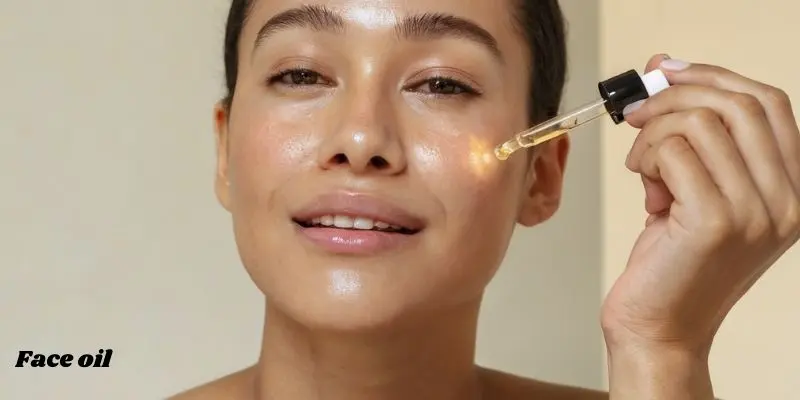Face Oils: The Miracle for Glowing Skin
Published: 9 Dec 2024
Face oils have quickly become a staple in skincare routines around the world due to their powerful hydrating and nourishing properties. Rich in essential fatty acids, antioxidants, and vitamins, they offer a wide range of benefits for all skin types. Whether you’re looking to combat dryness, enhance skin texture, or reduce the appearance of fine lines, face oils provide a natural solution for healthier, more radiant skin.

Are you confused about whether face oils are right for your skin? With so many skincare products available, it’s easy to wonder if oils are beneficial or if they’ll clog your pores. In reality, face oils can be incredibly effective, offering deep hydration and nourishment for all skin types when used correctly.
So, guys, without wasting time, let’s jump into the article Face oil.
The Benefits of Face Oils:
Face oils have become a must-have in modern skincare routines. Their ability to hydrate, nourish, and enhance skin texture has made them a revolutionary product for achieving healthy, glowing skin.
Here Guys we wanna talk about some benefits of face oil which is important for understanding.
- Deep Hydration
- Improves Skin Texture
- Nourishes Skin
- Balances Oil Production
- Boosts Radiance
- Anti-Aging Benefits
Benefits described in points. which is very useful for you.

Briefly Explanation
Now we will explore all points in depth for your convenience.
Deep Hydration
Face oils are an excellent source of intense moisture, helping to deeply hydrate the skin. Unlike regular moisturizers, they lock in moisture more effectively. This makes them a great option for dry or dehydrated skin.
Improves Skin Texture
Regular use of face oils can significantly improve the skin’s texture. By promoting a healthy skin barrier, they help smooth out rough patches and fine lines. The result is softer, more even skin over time.
Nourishes Skin
Face oils are rich in essential fatty acids and antioxidants, which nourish and repair the skin. These nourishing ingredients help restore vitality and promote healthy, glowing skin. They also protect the skin from environmental damage.
Balances Oil Production
Face oils can actually help regulate the skin’s natural oil production. By moisturizing and balancing the skin, they prevent excessive dryness or oiliness. This is especially beneficial for oily or acne-prone skin.
Boosts Radiance
Face oils give the skin a natural, healthy glow. They help revitalize tired, dull-looking skin by enhancing its radiance. Regular use can result in a more vibrant, youthful complexion.
Anti-Aging Benefits
Many face oils contain ingredients that target signs of aging, such as fine lines and wrinkles. These oils work by promoting collagen production and improving skin elasticity. With consistent use, face oils can help maintain youthful-looking skin.
How to Use Face Oil for Glowing Skin:
Face oil is a powerful skincare product that can transform your complexion, providing deep hydration and a natural glow. By following the right steps, you can easily incorporate face oil into your routine for healthier, radiant skin.
- Cleanse your skin.
- Apply a toner (optional).
- Use 2-3 drops of face oil.
- Warm the oil between your palms.
- Gently massage it into your skin.
- Allow the oil to absorb.
- Moisturize (optional).
Here we Briefly explain all points for you guys.
Briefly Explanation
Now we Will explore all feature for your guidance.
- Cleanse Your Skin: Start by cleansing your face with a gentle cleanser to remove dirt, oil, and makeup. Clean skin ensures that the face oil can penetrate more effectively.
- Apply a Toner (Optional): If you use a toner, apply it after cleansing to balance your skin’s pH and prep your skin for the oil.
- Use a Few Drops of Face Oil: Take 2-3 drops of face oil onto your fingertips. Less is more with face oils, so don’t over-apply.
- Warm the Oil: Rub the oil between your palms to warm it up slightly. This helps the oil absorb better into the skin.
- Gently Massage into Your Skin: Gently press the oil onto your face and massage it in using upward, circular motions. Focus on areas that are more dry or need extra care.
- Allow the Oil to Absorb: Let the face oil fully absorb into your skin. This is best done at night, but if you apply it during the day, wait a few minutes before applying makeup.
- Moisturize (Optional): If needed, you can follow with a light moisturizer to seal in the hydration, especially if you have dry skin.
How to apply Face Oil
Proper application is key to maximizing the benefits of face oils. Here’s a simple guide:
- Step 1: Cleanse
Start by cleansing your face with a gentle cleanser to remove dirt and impurities.

- Step 2: Apply a Toner (Optional)
Use a hydrating toner to prepare your skin for the oil.

- Step 3: Warm the Oil
Place 2-3 drops of your chosen face oil into your palms and warm it up between your hands. This allows the oil to absorb better into your skin.

- Step 4: Gently Press Into Skin
Massage the oil into your skin using upward motions, focusing on areas that need extra care.

- Step 5: Let It Absorb
Give your skin a few minutes to absorb the oil before applying makeup or other skincare products.
FAQs about Internet
Here are some of the most frequently asked questions about face oil.
Face oils provide deep hydration and nourishment, which are essential for achieving a radiant complexion. They are rich in vitamins, antioxidants, and essential fatty acids that help lock in moisture and promote a healthy glow. Regular use can also improve skin texture, reducing the appearance of fine lines and wrinkles, leaving your skin smooth and luminous. The right face oil can transform dull, tired skin into a glowing, vibrant complexion.
For dry skin, it’s important to choose face oils that are rich in nourishing ingredients and can provide deep hydration. Some of the best oils for dry skin include argan oil, rosehip oil, and marula oil. These oils are packed with vitamins and essential fatty acids that deeply moisturize and rejuvenate the skin, leaving it soft, smooth, and hydrated. Look for oils that are known for their intense moisturizing properties to help combat dryness and keep your skin looking dewy and refreshed.
Yes, face oils can actually benefit oily skin. The right oils, such as jojoba oil, grapeseed oil, and hemp seed oil, are lightweight and non-comedogenic, meaning they won’t clog pores. These oils help to balance oil production, preventing your skin from overproducing oil. By applying a suitable face oil, you can hydrate your skin without making it greasy, leading to a more balanced and clear complexion.
To use face oils effectively, start with a gentle cleanser to remove impurities from your skin. Then, apply a toner (if you use one) to balance your skin’s pH. Afterward, dispense a few drops of your chosen face oil into your palms and warm it up. Gently massage the oil into your skin using upward strokes, allowing it to absorb. Use face oils both in the morning and at night, depending on your skin’s needs. For the best results, layer your oil over a serum or moisturizer to enhance hydration and nourishment.
Conclusion: Face Oils – A Love or Hate Relationship?
Face oils can be an incredibly beneficial addition to your skincare routine, offering deep hydration, nourishment, and balance. However, they’re not a one-size-fits-all solution. It’s important to choose the right oil for your skin type and to use it in moderation to avoid any potential issues.
Ultimately, face oils offer a chance to connect with your skin in a deeper, more emotional way, creating a ritual that leaves you glowing both inside and out. So, is face oil a miracle for your skin or just a passing trend? It’s up to you to decide, but if used correctly, face oils can truly transform your skincare routine and provide both physical and emotional benefits

- Be Respectful
- Stay Relevant
- Stay Positive
- True Feedback
- Encourage Discussion
- Avoid Spamming
- No Fake News
- Don't Copy-Paste
- No Personal Attacks



- Be Respectful
- Stay Relevant
- Stay Positive
- True Feedback
- Encourage Discussion
- Avoid Spamming
- No Fake News
- Don't Copy-Paste
- No Personal Attacks





